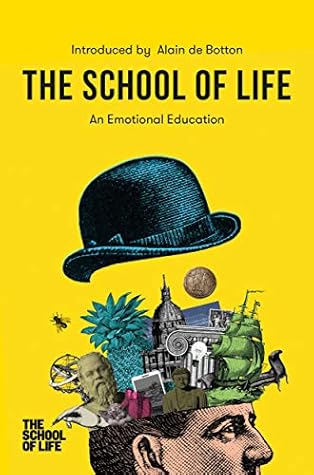More on this book
Community
Kindle Notes & Highlights
Read between
September 15, 2020 - October 30, 2022
The priority of modern politics is economic growth. But humanity’s struggle toward material security will only be worthwhile if we understand and find ways to attenuate the psychological afflictions that appear to continue into, and are sometimes directly fostered by, conditions of abundance. The problems of the thirty or so rich countries described as First World are the ones that the whole of our species will, according to current trajectories, be facing in 300 years’ time. The issues that currently wreck people’s lives in Switzerland and Norway, Australia and the Netherlands are the
...more
We could expect humans to display a powerful reflex for simple over obscure explanations. Yet in many areas of intellectual and psychological life, we observe a stranger, more unexpected phenomenon: a prejudice in favor of abstruseness, density, enigma, and the esoteric. Our respect for explanations that come close to incomprehensible, that provoke puzzlement, that employ uncommon words suggests an implicit belief that the truth should not come in a form that is easily fathomable. We too readily assume that we are approaching a person of genius when we stop understanding anything of what
...more
The truth is likely to be more hopeful—though, in the short term, a great deal more uncomfortable. We are a certain way because we were knocked off a more fulfilling trajectory years ago. In the face of a viciously competitive parent, we took refuge in underachievement. Having lived around a parent disgusted by the body, sex became frightening. Surrounded by material unreliability, we had to overachieve in relation to money and social prestige. Hurt by a dismissive parent, we fell into patterns of emotional avoidance. A volatile parent pushed us toward our present meekness. Early
...more
We are judged on the behaviors that our wounds inspire, rather than on the wounds themselves.
We make our lives tougher than they should be because we insist on thinking of people, ourselves and others, as inept and mean rather than, as is almost invariably the case, primarily the victims of what we have all in some ways traveled through: an immensely tricky early history.
The so-called narcissist is simply a benighted soul who has not had a chance to be inordinately and unreasonably admired and cared for at the start.
What we call depression is in fact sadness and anger that have for too long not been paid the attention they deserve.
Something within us knows far better than our day-to-day consciousness permits us to realize the direction we need to go in in order to become whom we could really be.
A daily period of philosophical meditation does not so much dissolve problems as create an occasion during which the mind can order and understand itself. Fears, resentments, and hopes become easier to name; we grow less scared of the contents of our own minds—and less resentful, calmer, and clearer about our direction. We start, in faltering steps, to know ourselves slightly better.
The journey to self-knowledge needs to begin with a better map of the terrain of normality.
It’s a law of nature. There can, perplexingly, be no such thing as a person with only strengths.
Kindness is built out of a constantly renewed and gently resigned awareness that weakness-free people do not exist.
Anxiety is simply insight that we haven’t yet found a productive use for, that hasn’t yet made its way into art or philosophy.
We are ready for relationships not when we have encountered perfection, but when we have grown willing to give flaws the charitable interpretations they deserve.


